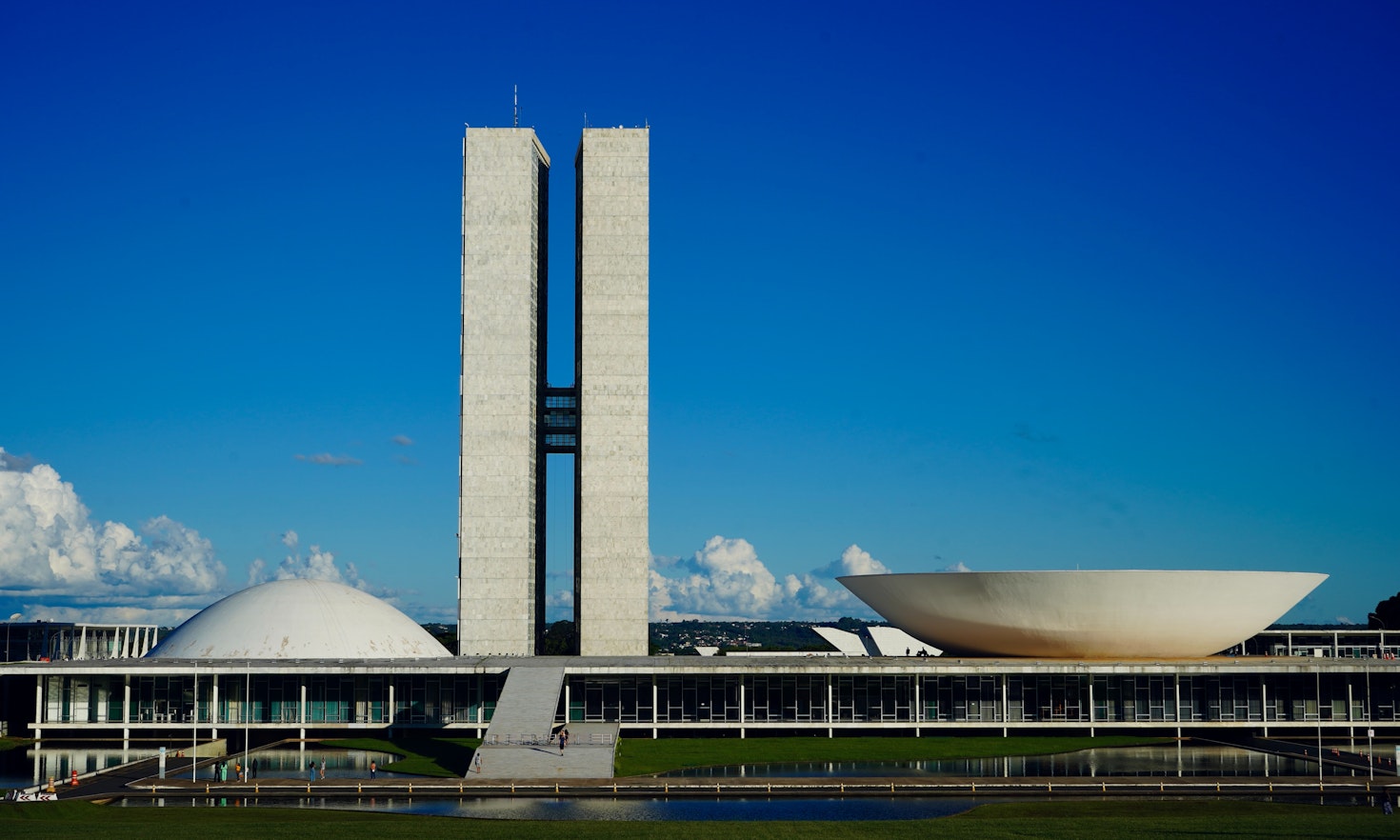![[DT] Entwicklung der Geschlechtergleichstellung in der EU: ein Rückblick](https://webassets.eurac.edu/31538/1599755268-photo-1514895545225-100745680d22.jpg?w=680&h=457&fit=crop&crop=focalpoint&fp-x=0.5&fp-y=0.5&auto=format&dpr=1.5)
[DT] Entwicklung der Geschlechtergleichstellung in der EU: ein Rückblick
 Cecilia Vera Lagomarsino
Cecilia Vera Lagomarsino
[i] Original text published on May 29, 2023 in the Blog Gestão, Política e Sociedade of the newspaper "Estadão".
When in 1988, Brazil’s constitution-makers chose to elevate municipalities to federal entities, they did so with the intention of strengthening democracy. The premise was the closer citizens were to governmental structures, the greater the chances of public policies meeting their aspirations. Despite literature having “demystified” the relationship between decentralization and democracy, those who designed the new federal model outlined by the Federal Constitution still upheld this vision. In other words, the idea of empowering local governments surpassed the belief that “Brasília” would be capable of solving all of the country’s problems.
On the other hand, the new design still retained the American inspiration, with a bicameral congress containing, on one side, representatives of the states and, on the other, representatives of the population. The aim was to ensure and reconcile different interests in the national decision-making process. However, the state legislature did not follow the national format, being unicameral and thus lacking space for municipal representation.
The institutional innovation of the 1988 Federal Constitution, while granting political autonomy to municipal governments, did not provide a space for their interests to be considered in the national or state legislatures. In other words, municipalities did not have institutional channels for advocating their demands in the political arenas of other levels of government.
Furthermore, the constitutional framework in Article 23 introduced a set of shared responsibilities among the different levels of government. These included, among others health, education, environment, culture and poverty alleviation. This was the first step, complemented by various subsequent institutional reforms, towards establishing a cooperative federalism, where public policies needed to be formulated and implemented jointly. However, the framework did not foresee a forum for the three levels of government, or their representatives, to jointly discuss and negotiate effective and feasible solutions to the country’s problems.
The path to filling this institutional void began with the implementation of the Unified Health System (SUS). The creation of the Tripartite Intergovernmental Commission in the 1990s brought federal, state, and municipal government officials to the same table to discuss and decide on national policies adopted by the Ministry of Health. This marked the beginning of Brazilian executive federalism. This approach spread to other sectors, particularly with the establishment of national systems for public policies, such as water resources, social assistance, social housing, public security and more.
The importance of participation and the strengthening of municipalism and executive federalism gained prominence during Lula’s second administration. In 2007, the Institutional Relations Secretariat of the Presidency created the Federative Articulation Committee (CAF). The committee aimed “to promote articulation in the formulation of strategies and implementation of coordinated and cooperative actions between federal and municipal government spheres.” The CAF became one of the main mechanisms for dialogue between the federal government and municipal executives. Despite these advances, the Brazilian federation still lacked a tripartite forum for articulation and negotiation, giving that the states were not part of this institutional arrangement.
Recent influences have changed this context. The first concerns the conflictual nature and lack of federative dialogue established in the Bolsonaro government, exacerbated during the sanitary crisis caused by Covid-19. It is important to recall that one of the first initiatives of that administration, in May 2019, was the abolition, through Decree No. 9,759/2019, of numerous collegial bodies that served as diverse spaces for participation in national public policy deliberations, including the CAF itself.
The challenge to participatory instances and cooperative federalism culminated in questioning the autonomy of states and municipalities to determine pandemic mitigation measures. This was promptly rejected by the Supreme Court, who decided in favor of subnational entities and safeguarding fundamental federative principles for democracy. This conflictual logic of the Bolsonaro administration led to a centripetal force among the states, bringing them closer together and allowing the construction of consensus and common agendas among them.
The increasing meetings of the Governors’ Forum and the adoption of common strategies through national entities representing the states, such as the Northeast Consortium, CONASS (National Council of State Health Secretaries), FONSEAS (National Forum of State Social Assistance Secretaries), and CONSEFAZ (National Committee of State Finance, Revenue, or Taxation Secretaries and of the Federal District) contributed to this convergence.
The second movement is even more recent and is based on the election of President Lula and the institutional responses resulting from the attacks against democracy on January 8, 2023. The meeting with the governors in defense of democracy amplified the logic of democratic coalition that supported President Lula’s election, giving even more prominence to federative dialogue and the strengthening of intergovernmental cooperation.
It is within this context that the Council of Federation has emerged. Already existing in consolidated federations like Germany and Australia, this new institutional structure inaugurates a new Era of Brazilian federalism, which historically is closely intertwined with democratic ideals. Presided over by the President of the Republic and composed equally of the three levels of government, the Council aims to “support and promote the articulation, negotiation and agreements of strategies of common priority interests for the different levels of government, aiming at sustainable economic development and the reduction of social and regional inequalities.”
Respecting federative autonomies and the constitutional attribution limits of Executive powers, the Council will contribute to the construction of consensus, the enhancement of cooperative and coordinative federative instruments, the integration of existing structures and mechanisms in a sectoral manner, and the promotion of policies that stimulates greater equity among subnational entities.
Federative agreements are its main assignment, serving to define common priorities, jointly formulate national policies, and strengthen cooperation and federative coordination, also at the subnational level. The idea is that the Council contributes to the diffusion of successful policies and favors institutional learning, and that it also produces studies to guide decisions and consensus-seeking. For this purpose, technical chambers will be created, composed of representatives from the various government levels, these chambers will produce diagnoses and proposals to be submitted to the Council’s plenary.
Dialogue with the legislative branches is also envisioned, with the possibility of inviting their representatives to participate in the plenary sessions. Therefore, in addition to promoting dialogue between the executive powers of the federation, the Council also contributes to the relationship with the National Congress, which can make decisions considering the aspirations and interests of the various government levels. Furthermore, these pacts can also help reduce the judicialization of federative conflicts, decreasing demands on the judicial system and preserving the political environment - and consequently elected representatives - for resolving disagreements.
The Council of Federation is not, in itself, the remedy for solving all of Brazil’s problems. However, in a favorable political context, its creation institutionalizes a channel that has never existed in our federation: direct, republican, and transparent dialogue between the executive powers of the different levels of government. It contributes to rehabilitating the health of our democracy. The Council opens a new era for the future of democracy and the federation, consolidating intergovernmental cooperation as an organic element of the Brazilian state.



This content is licensed under a Creative Commons Attribution 4.0 International license.